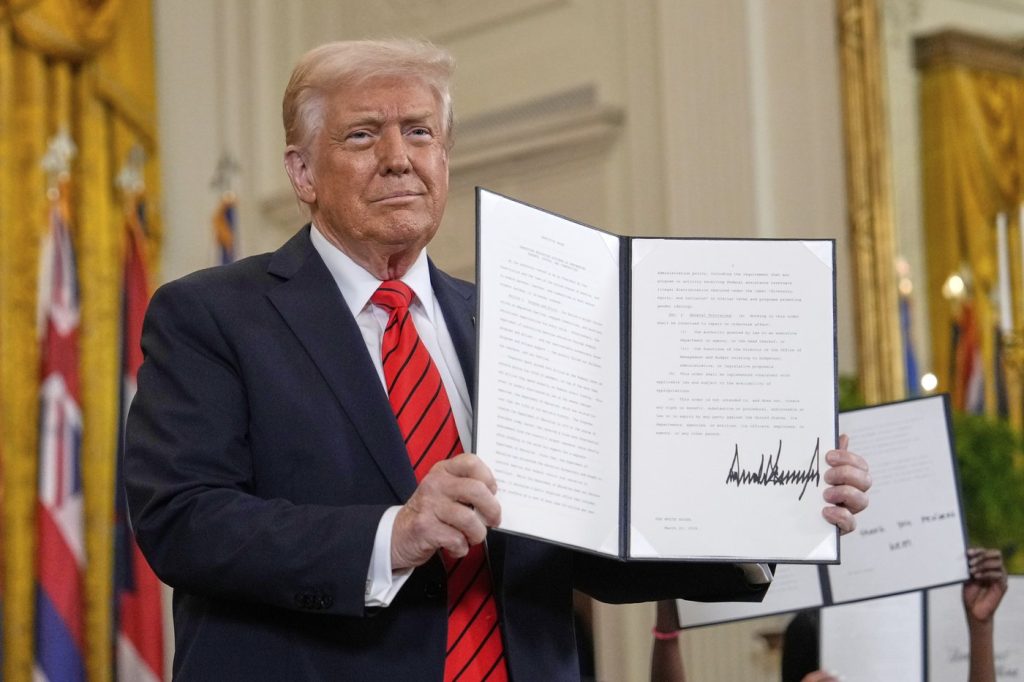On Wednesday, the Trump administration took an emergency appeal to the Supreme Court, seeking permission to implement cuts amounting to hundreds of millions of dollars targeted at teacher training programs. This legal move follows a federal judge's decision in Boston that temporarily blocked these cuts, determining that they were adversely impacting training initiatives designed to mitigate a nationwide teacher shortage. Additionally, a federal appeals court dismissed the administration's previous request to lift the block.
The administration's petition to the Supreme Court argues that federal judges across the country are incorrectly pressuring the government to continue disbursing millions in grant money, therefore hindering its administrative capabilities. The Supreme Court has mandated a response to this latest appeal by Friday, intensifying the urgency of the situation.
This legal dispute was initiated by U.S. District Judge Myong Joun after a coalition of eight Democratic-led states argued that the proposed funding cuts were influenced by the Trump administration's agenda to dismantle diversity, equity, and inclusion programs. President Donald Trump had previously signed an executive order aiming to eliminate aspects of the Education Department he categorized as “woke” or wasteful.
In her filing, acting Solicitor General Sarah M. Harris emphasized that without prompt appellate review, the situation could lead to prolonged fiscal micromanagement by lower courts, which would complicate the administration's operations. The Justice Department has also submitted other emergency appeals against court rulings that have interrupted various actions from Trump's agenda, a pattern emerging amidst a barrage of lawsuits aimed at curtailing his policies.
Currently, the Supreme Court is also considering an appeal that would limit court orders that are imposing a nationwide hold on the administration's intentions to alter birthright citizenship policies. Furthermore, there's an ongoing appeal regarding the reinstatement of thousands of federal workers who were dismissed under Trump's orders.
The two educational funding programs under scrutiny—the Teacher Quality Partnership and Supporting Effective Educator Development—provide over $600 million in grants targeted towards teacher preparation, particularly in critical fields like math, science, and special education. The states involved in the lawsuit argue that these programs have positively impacted teacher retention rates, helping educators to stay in the profession for longer periods.
In February, the Trump administration abruptly halted these teaching programs without prior notice. It contends that the states could temporarily utilize their own resources to sustain the initiatives if needed. In his decision, Judge Joun, nominated by Democratic President Joe Biden, asserted that the administration's cuts likely violated federal law, which necessitates a comprehensive explanation for such budgetary reductions.
The federal appeals panel, which denied the administration's request for a stay, was also composed of judges appointed by Democratic presidents. California leads the coalition of states involved in the lawsuit, joined by Massachusetts, New Jersey, Colorado, Illinois, Maryland, New York, and Wisconsin. The high court's order sought by the Trump administration would allow the proposed funding cuts to proceed while further legal discussions unfold.










